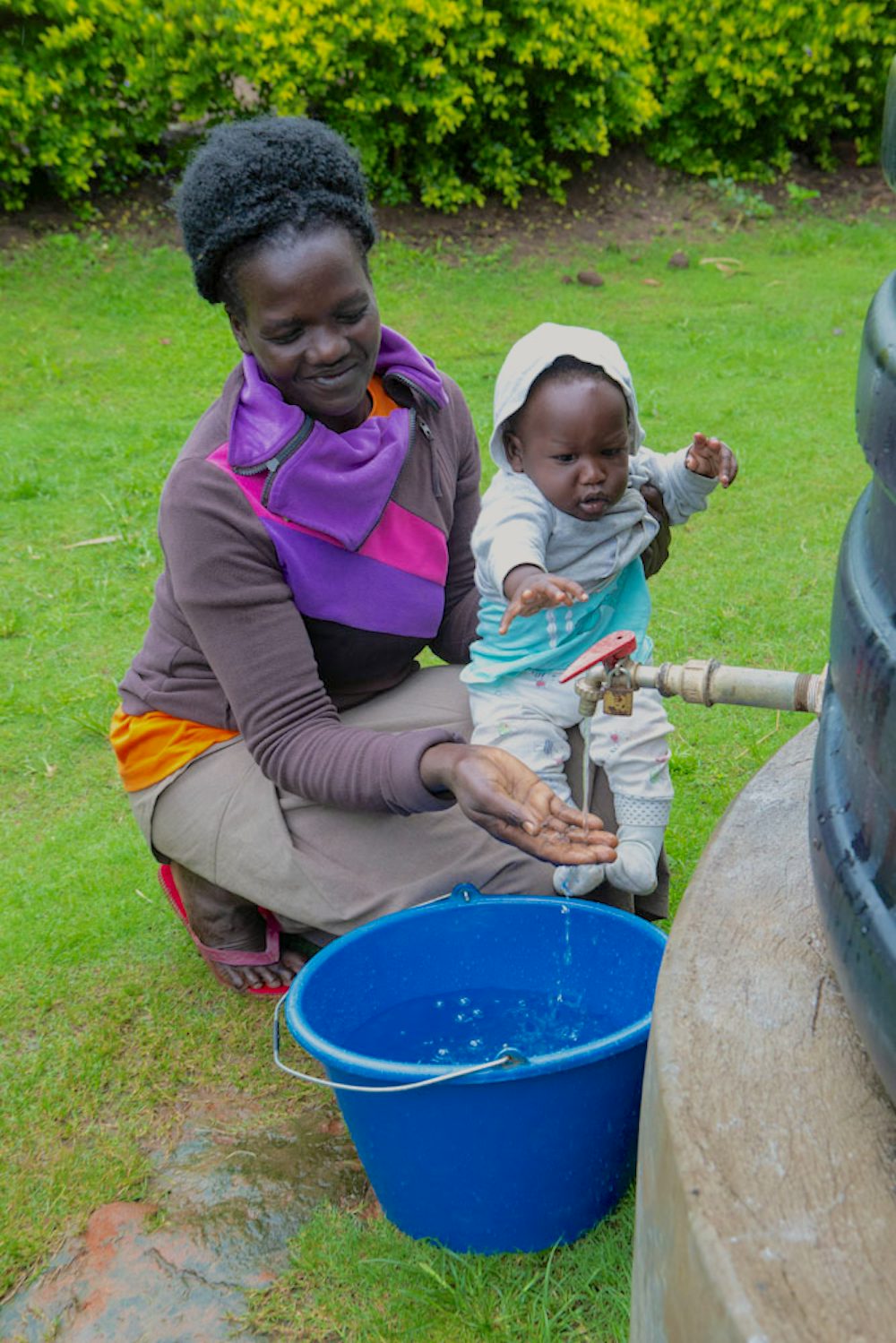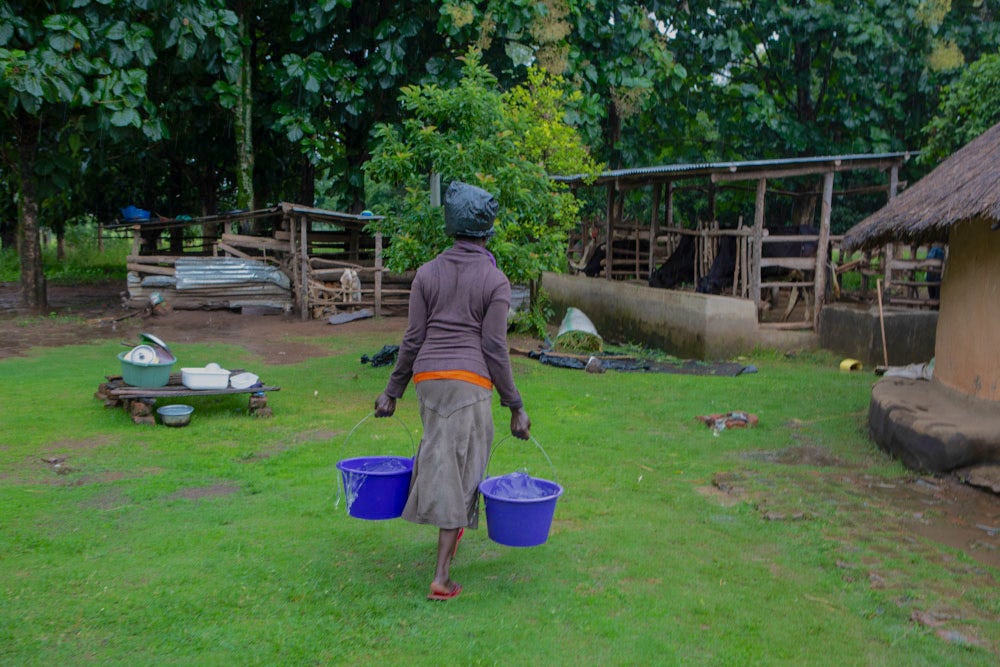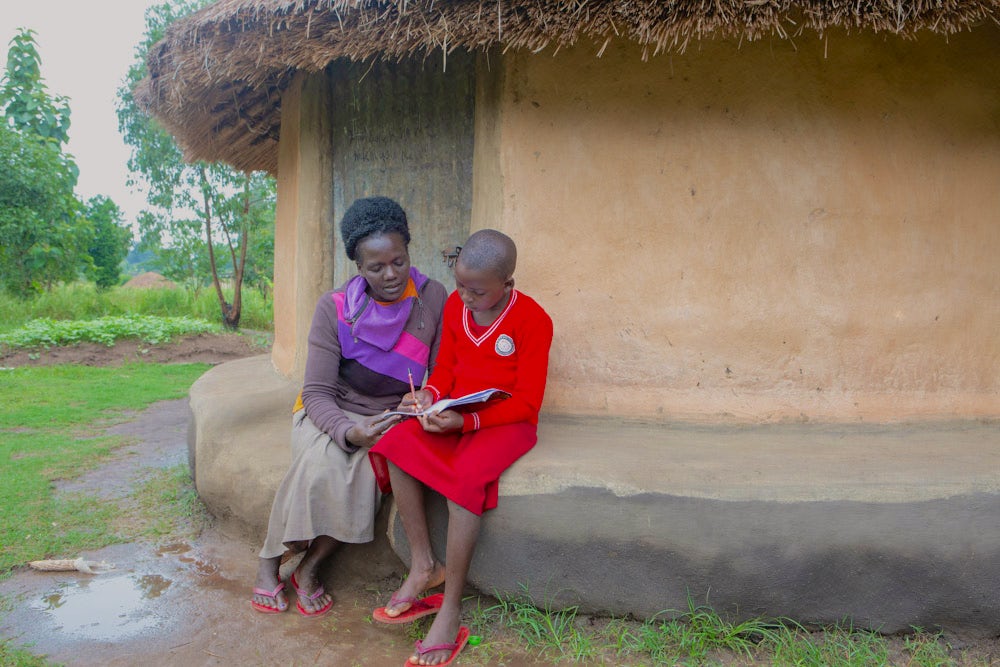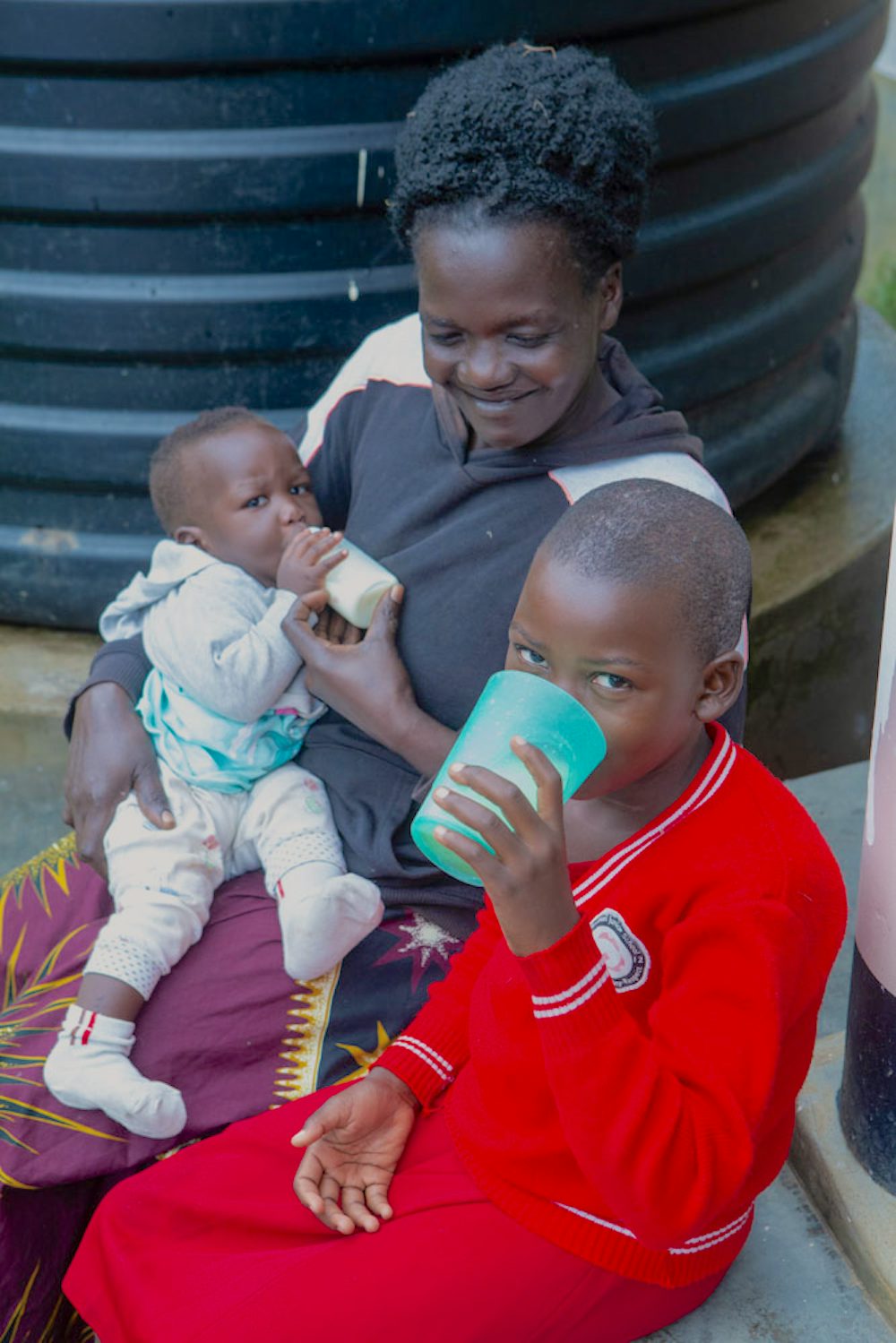It’s raining so hard on Lucy Arach’s farm in Gulu District of northern Uganda, even the dog has sought shelter. But not Lucy. The only concession the 42-year-old mother, grandmother and smallholder farmer has made to the wet weather is to place a plastic bag over her hair. Otherwise, she moves around her farmyard with purpose: from the goat enclosure to the chicken coop to the modest cowshed where she piles fodder for the two Friesen heifers, the young bull and the calf sheltered within.

Just a few feet from her humble one-story home is a rainwater collection tank. Lucy opens a spigot on the tank and fills a bucket with water, which she carries to the cowshed. A simple act for many of us — turning a spigot’s handle and receiving water in return — is no small wonder for Lucy. Before she acquired the tank, through Heifer International’s Jinnai Dairy Development Project, she walked several times each day to the shared community well to haul water home for her household and farm needs. The time and energy she once spent carrying water she can now invest in her family, her home and her farm.
In 2022, the two heifers in Lucy’s cowshed also came to her, as a livestock loan, through the Jinnai project. Like other farmers participating in the project, Lucy pays for the cows in small monthly installments through milk sales to the Heifer-supported Gulu Nozomi Dairy Cooperative. Lucy spends most of the rest of her earnings on school fees for five of her seven children and to support the two orphaned girls she is raising.
“I want these girls to get a better life, to study so that they don’t have a lot of regrets,” she said.
Lucy speaks not in English but in the Southern Luo dialect of the Acholi people, one of 56 tribes in Uganda. Although English is Uganda’s official language, Lucy didn’t have the opportunity to study it, nor to attend school in the first place. Her father, a primary school teacher, died of tuberculosis when she was an infant. Lucy was raised alongside her cousins by her mother’s family. The family grew millet, sorghum, beans, sweet potatoes, peanuts and oranges; Lucy helped with weeding. Her older siblings, who had attended school, taught her how to write her name and count.

Lucy was a teenager when the Lord’s Resistance Army terrorized Northern Uganda, including Gulu District. For more than five years, rebel fighters routinely raided her family’s farm, often stealing their goats and chickens. If the family was outdoors when the rebels arrived, they would run and hide in the bush, sometimes spending the night there.
“So, it was really very, very hard because the encounter with the rebels was very, very often,” said Lucy.
Shortly after the rebel attacks eased, Lucy married. She was 17. In 2006, she and her husband James bought a half an acre of land. While she was raising their seven children, she slowly built the farm she runs today. She doesn’t know how much James earns teaching at the nearby college. She does know it’s not always enough to support her family.

Fluctuating poverty rates in Uganda are principally driven by the experience of rural households, said a 2022 report from the World Bank. Poverty surged during the 2016-2017 drought and again in response to the COVID-19 pandemic. About 90 percent of Uganda’s farmers report that climate conditions have worsened for agriculture in the last decade.

Yet, today, Lucy can afford food and school fees because her farm is more productive. She credits the Jinnai project, in part, for the improvements. Through the project, Lucy not only gained her two heifers, she also learned how to protect them from parasites, grow grasses to feed them and mix those grasses with other ingredients to make more nutritious feed.
Her cows’ milk production has increased, providing her with enough for her family to drink. What’s left she sells to the cooperative, which earns her enough to pay off her debt to Heifer for the cows and pay for her children’s education. There’s even a little extra. This she saves, hoping to reinvest it in the farm, building several small dwellings to rent out.
“Before I joined Heifer, there are times when I will not have 50 shillings on me,” said Lucy. That she can now feed and educate her children, and imagine an even more abundant future, brings Lucy joy — an emotion that can’t be easily extinguished, not even by a downpour.
